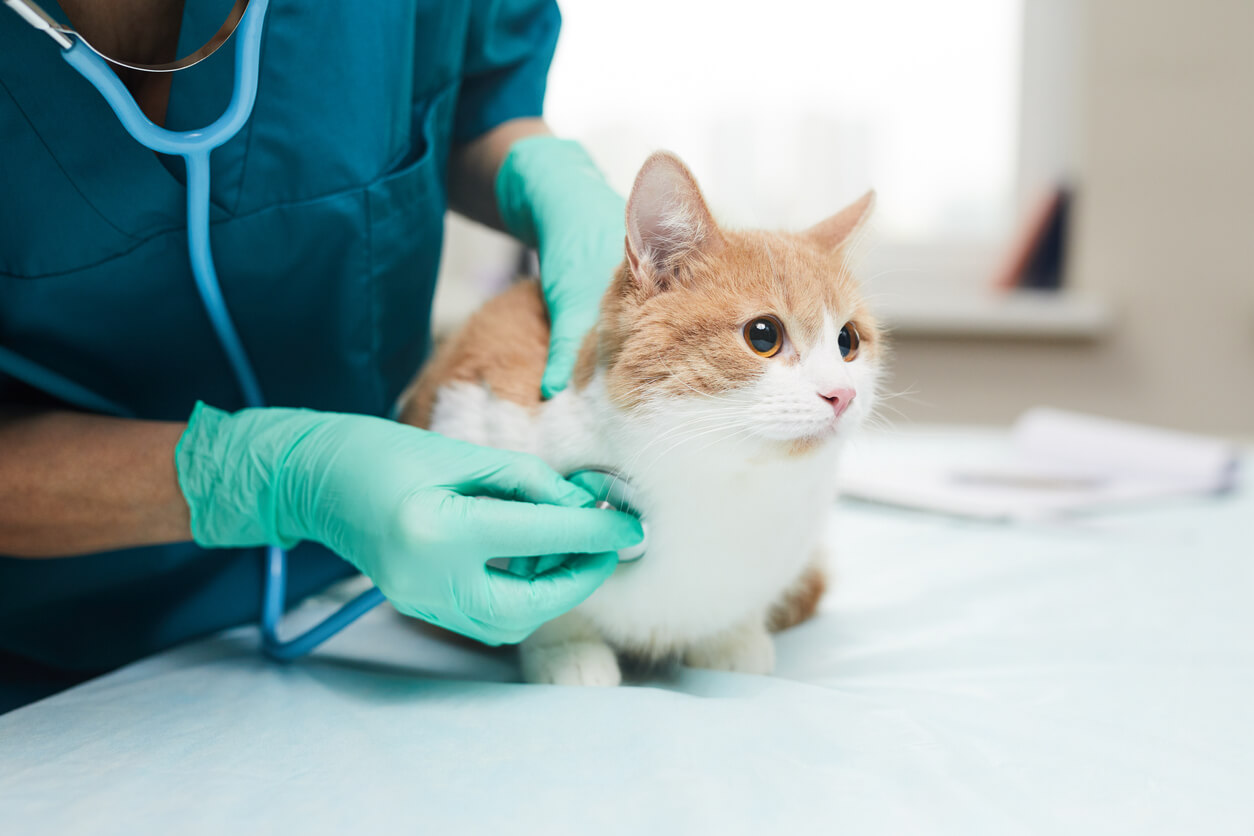Why a Routine Pet Health Checkup is Crucial for Preventative Pet Care
Vaccination Guidelines From Your Relied On Vet
Inoculation guidelines provided by your trusted veterinarian play a critical duty in securing your pet dog's health and wellness and well-being. In addition, dealing with common misconceptions surrounding vaccines can even more boost family pet owners' self-confidence in these preventive actions.

Relevance of Vaccinations
Inoculations play an essential function in protecting pets against an array of preventable conditions. By promoting the immune system to identify and combat particular pathogens, injections dramatically lower the incidence of transmittable illness that can influence a family pet's health and wellness and longevity. Not only do vaccinations protect individual pets, but they also add to herd immunity, thereby minimizing the overall prevalence of illness in the family pet population.
Timely inoculations help to minimize the spread of conditions such as rabies, parvovirus, and distemper, which can have serious effects for both people and pets. Inoculations are typically a requirement for boarding centers, grooming solutions, and dog parks, making them vital for those who desire to socialize their family pets.

Core Vaccines for Family Pets
While the details inoculation requirements of family pets can differ based on individual aspects, core injections are globally advised to secure versus one of the most common and serious illness (Pet Vaccinations). Core vaccines are those regarded essential for all family pets, regardless of their way of life or geographic place, as they secure versus extremely contagious and possibly deadly ailments
For dogs, the core vaccinations consist of those for canine distemper, parvovirus, adenovirus (liver disease), and rabies. Adenovirus can result in liver condition, while rabies is a zoonotic disease that positions a danger to both humans and family pets.
In cats, core injections incorporate feline panleukopenia, feline calicivirus, feline herpesvirus (rhinotracheitis), and rabies. Feline panleukopenia is an extremely infectious viral condition that influences the immune system and intestines. Calicivirus and herpesvirus are significant contributors to top respiratory infections in felines, while rabies stays a critical problem for public health and wellness.
Talk to your vet to ensure your pets receive their core inoculations on routine.
Non-Core Vaccines Explained
Non-core vaccinations are customized to attend to certain dangers related to a family pet's exposure, environment, and way of living to specific diseases. Unlike core injections, which are widely recommended for all family pets, non-core vaccinations are considered based upon private situations. These vaccinations are specifically crucial for pet dogs that might run into distinct microorganisms because of their geographical location, traveling practices, or activities.
Examples of non-core vaccines consist of those for Bordetella bronchiseptica, which Find Out More is connected to kennel cough, and Lyme condition, triggered by ticks. Animals that regularly interact with various other animals, such as those in boarding facilities, pet parks, or brushing settings, may benefit from Bordetella vaccination. If you live in an area where Lyme disease is prevalent, immunizing versus this disease can be a sensible choice for outdoor-loving canines.
Various other non-core injections might consist of those for leptospirosis, canine flu, and feline leukemia, depending on the details risk aspects existing. It is important to have a comprehensive conversation with your veterinarian regarding your pet dog's lifestyle and the prospective demand for these vaccines, making sure a customized vaccination approach that ideal secures your hairy buddy.
Inoculation Arrange Review

As pets develop, it is essential to stick to the suggested booster inoculations. Pet Vaccinations. For grown-up pets, core vaccines are commonly provided each to three years, depending upon the details vaccine and local guidelines. Non-core vaccinations may be encouraged based on way of life variables and local disease frequency, demanding a customized strategy
Routine veterinary examinations are vital for upgrading vaccination routines. Your veterinarian can give guidance on one of the most proper booster shots for your animal, factoring in age, wellness standing, and ecological risks. By remaining proactive and informed, pet dog proprietors can ensure their furry buddies get prompt and effective inoculations, consequently securing their health and well-being throughout their lives.
Typical Misconceptions Regarding Injections
Misconceptions about animal vaccinations can result in confusion and reluctance among family pet proprietors relating to the booster shot process. One common myth is that injections are unneeded for interior pet dogs. While it holds true that indoor pet dogs encounter lower dangers, they are not entirely immune to diseases, as pathogens can be presented through why not find out more numerous means, consisting of human apparel and various other pets.
An additional false impression is that vaccinations can create the conditions they intend to stop. Actually, most vaccinations include suspended or undermined microorganisms, which can not cause condition in healthy animals. Some pet dog owners additionally think that their pets ought to not be immunized if they are currently healthy; nonetheless, vaccinations are a proactive step that helps prevent the start of health problem.
Furthermore, many family pet proprietors fear that vaccinations will cause long-term wellness issues. While side see it here effects can take place, they are momentary and normally light. The advantages of inoculation-- securing pets from possibly deadly conditions-- far surpass the risks. Recognizing these typical myths is critical for liable pet dog possession and ensuring the health and wellness of your hairy friends. Constantly consult your veterinarian for precise details customized to your pet's specific needs.
Final Thought
In recap, adherence to vaccination guidelines is essential for guaranteeing the health and durability of animals. Core vaccines offer important protection against serious conditions, while non-core vaccines address particular risks based upon individual way of livings. Establishing a comprehensive vaccination timetable, combined with routine veterinary check-ups, facilitates ideal health and wellness administration. Resolving common misconceptions surrounding inoculations even more enhances the significance of educated decision-making in family pet care. Inevitably, an aggressive method to vaccinations is essential for preserving pet dog wellness.
Not only do inoculations safeguard specific animals, however they also add to herd resistance, consequently decreasing the total frequency of illness in the animal population.
Misconceptions about animal vaccinations can lead to complication and hesitation among family pet proprietors concerning the booster shot process. While it's real that indoor pets encounter lower threats, they are not entirely immune to diseases, as microorganisms can be presented through different methods, including human clothing and various other animals.
Some pet owners additionally believe that their family pets should not be immunized if they are already healthy; nevertheless, vaccinations are an aggressive step that helps stop the start of illness.
The benefits of vaccination-- securing animals from possibly dangerous conditions-- much surpass the threats.